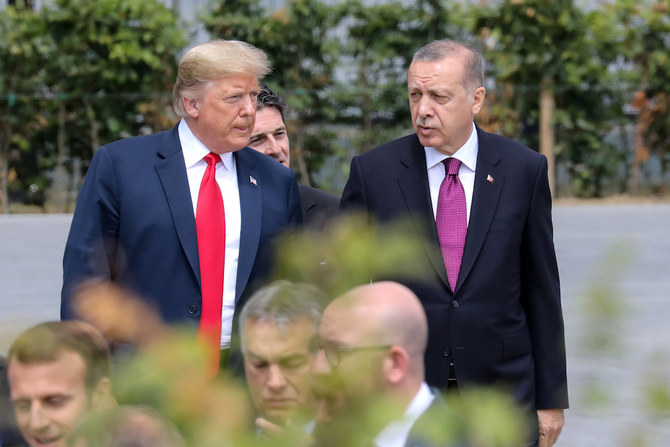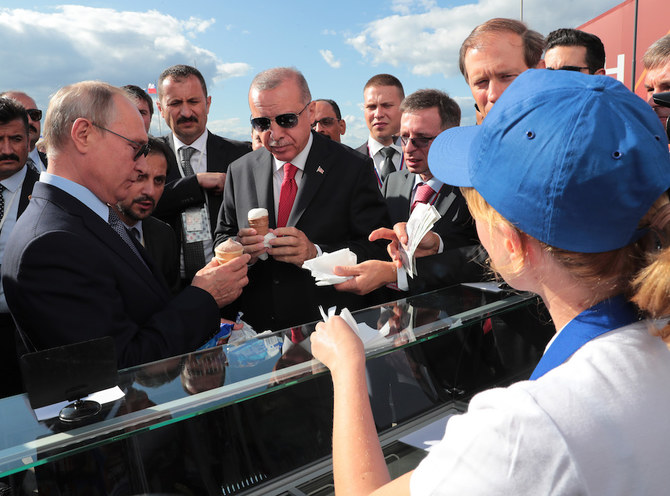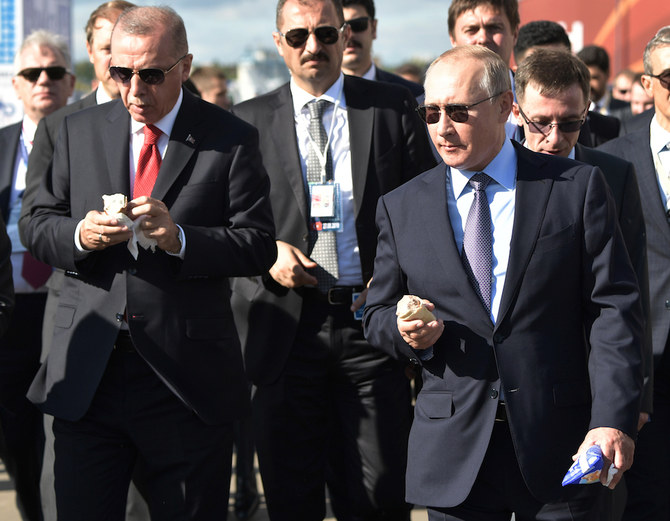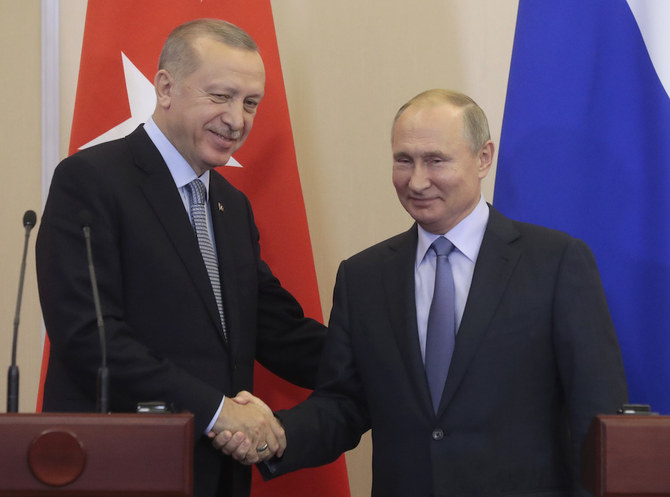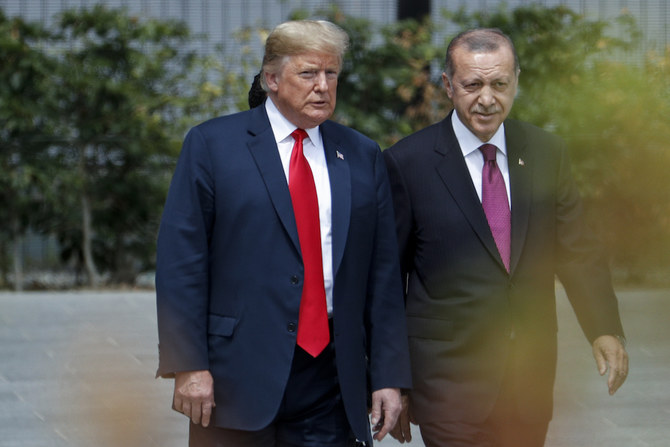MISSOURI: The vast majority of US policymakers, legislators, officials and even American citizens do not look favorably upon Turkish President Recep Tayyip Erdogan’s official state visit on Wednesday. The honor of the White House invitation strikes many in the US as inappropriate and badly timed.
This, along with US President Donald Trump’s Oct. 6 capitulation to Erdogan and his surprise announcement of an immediate withdrawal of US troops from the Syrian border, stands out as perhaps the only major issue to cause bipartisan opposition to Trump.
Even as Erdogan meets with Trump on Wednesday, the US Congress is pushing forward with more sanctions against Turkey for its invasion of Syria disguised as a military operation — “Operation Peace Spring” — against “Kurdish terrorists.”
In recent years, Turkey has helped solidify Russian influence over large expanses of the war-torn Middle East at the expense of its traditional NATO allies, from whom it has steadily drifted away.
Assuming that Trump’s America (if not Europe) does not care so much about democracy or human rights norms, other recent Turkish policies make the collision with Washington and the Europeans abundantly clear.
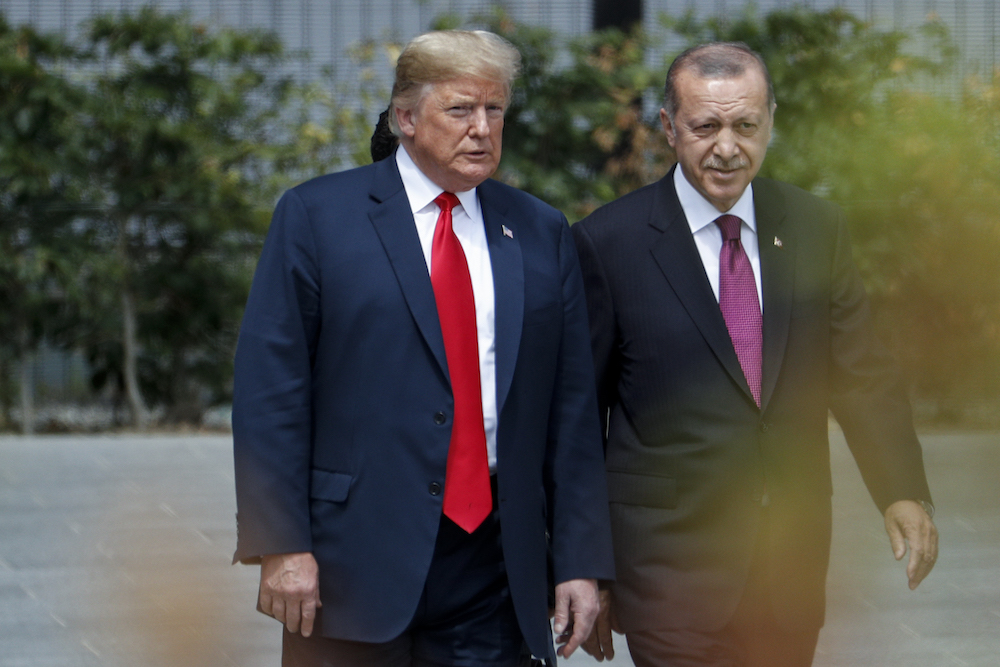
Turkey helped Iran evade US sanctions for many years, leading to indictments against some of its officials and top bank executives.
Last summer, Turkey purchased the S-400 air defense system from Russia, which is not inter-operable with NATO systems and could allow Russian technicians to gain valuable intelligence about American-made fighter aircraft.
Throughout most of the civil war in Syria, Turkey backed various extremist groups fighting Bashar Al-Assad’s regime. It allowed tens of thousands of militants to transit through its territory en route to Syria, without lifting a finger as they established their “caliphate” right over the border.
After also denying the Americans the use of the NATO airbase at Incirlik for anti-Daesh operations, Washington found its Syrian Kurdish allies to help them against Daesh. As soon as the Kurds had liberated the last of Daesh-held territories in Syria, Turkey insisted that it had to move against main Kurdish fighting force.
With its “Operation Peace Spring,” Turkey and its Syrian proxies successfully pushed the Americans out of most of Syria and forced the Kurds to turn to Russia and the Assad regime for protection.
As European leaders criticized the offensive, which many describe as a program of ethnic cleansing, Turkey threatened to unleash millions of Syrian refugees into Europe.
The ongoing fighting, chaos and displacement in northern Syria is also allowing Daesh captives held by the Kurds to escape, reinvigorating a movement that was on its deathbed just a few weeks ago.
Small wonder then, talk of expelling Turkey from NATO is now a mainstay in American and European media. Despite fierce Turkish opposition and lobbying, Congress on Oct. 29 finally passed a resolution recognizing the Armenian genocide.
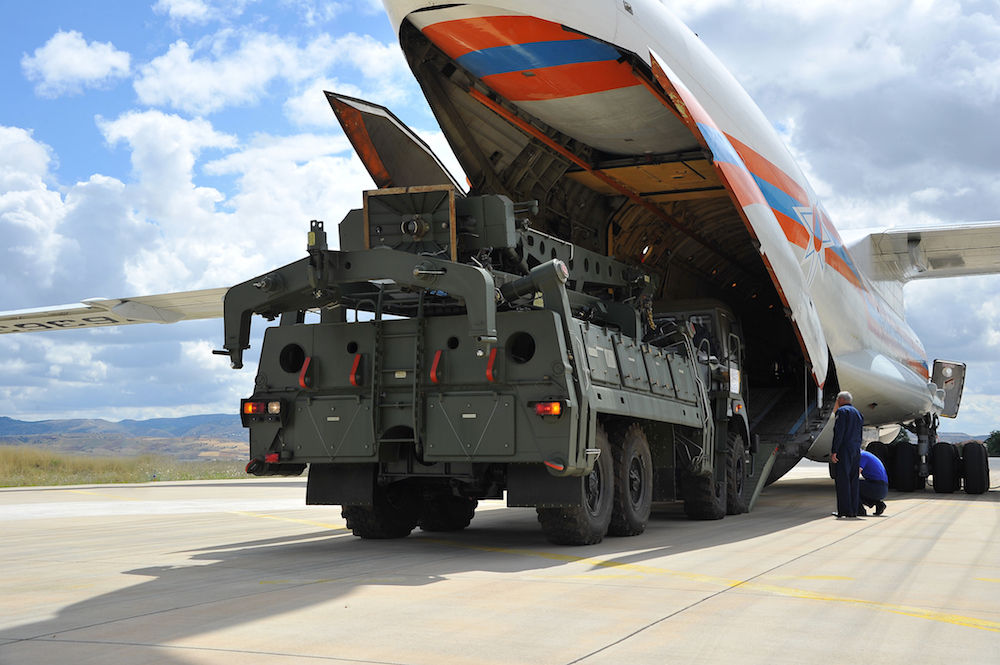
American attitudes towards Turkey were not always like this.
In the halls of US government and particularly in the State Department, there was a time when one could not overemphasize Turkey’s importance or praise Ankara enough.
In the early days of the previous Democratic administration, President Obama often spoke of Turkey as “a model” for the rest of the Muslim world.
What happened?
President Erdogan and his Sunni nationalist Justice and Development Party (AKP) happened.
At the beginning of the AKP’s takeover of Turkey, the changes seemed too slow or subtle to draw much attention. Following the AKP’s first electoral victory in 2002, Turkey’s military and secular old guard (known as “Kemalists”) continued to wield a great deal of political power behind the scenes.
This Western-leaning old guard placed a great deal of value on Turkey’s NATO membership, its relations with Washington and a general policy of not becoming too entangled in the myriad problems of the Middle East.
The first sign of change came just before America’s 2003 invasion of Iraq. While few expected Turkey to participate in that war, top Turkish leaders and the military had promised the Americans they could pass through their territory to attack Saddam Hussein’s Iraq from the north as well as the south.
AKP parliamentarians surprised the old guard by voting not to allow American troops to transit through Turkey, effectively denying America its northern front against Saddam’s regime.
The move proved extremely popular with the Turkish public, which despite a long relationship with NATO and the US, was never known for much pro-American sentiment.
In the following years, Erdogan managed to completely purge the Kemalist old guard and military from politics. He did so through his own charisma and a series of mostly fabricated conspiracy charges against his political opponents, aided by a growing economy and an increasingly strident anti-American, Islamist-sounding rhetoric.
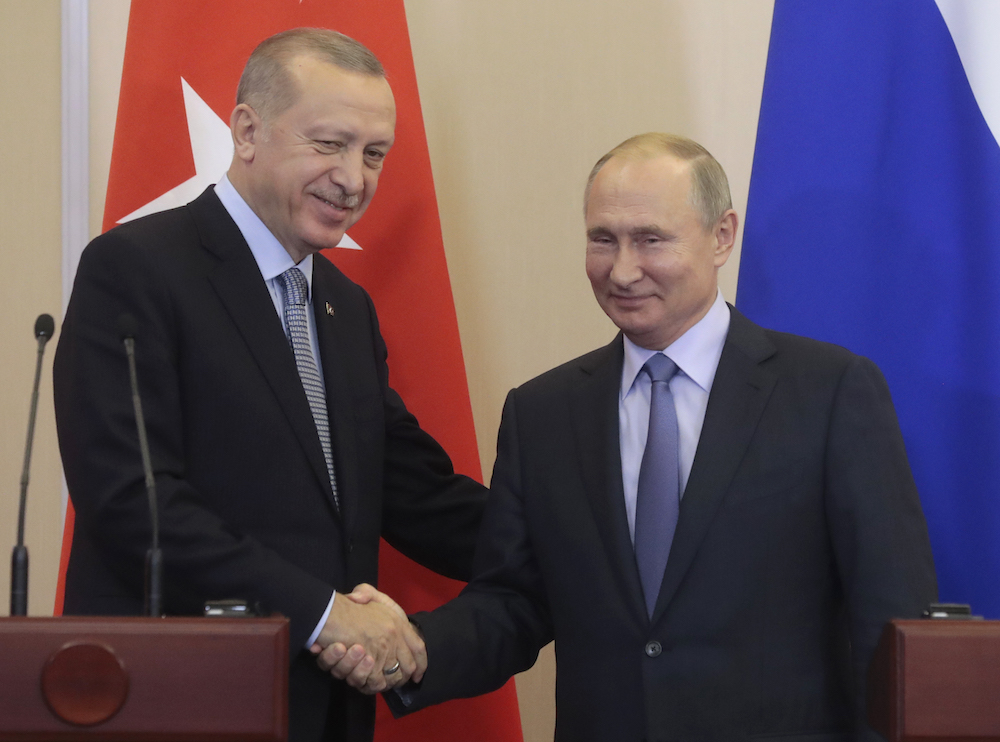
The change in Turkey became most apparent by 2011, when the Turkish chief of army staff, the head of the air force, the head of the navy and the head of the land forces all resigned on the same day.
Once the Kemalist old guard was purged and the military forced back into its barracks, Erdogan and his inner circle could freely pursue their own foreign policy instincts.
These instincts seemed to call for Turkey to become more involved in the Middle East, to aspire towards regaining some of the stature and importance of its Ottoman forebears, to distance itself from American and European policies, and even to lean more towards the East and Russia.
These new foreign-policy goals put Turkey on a collision course with America’s interests and those of other American allies.
When the Arab Spring began in 2011, Erdogan’s new Turkey supported Islamists in every Arab country rocked by protests. Erdogan himself reveled in the prospect of a new Muslim Brotherhood-dominated Middle East, envisioning himself as the neo-Ottoman leader of the new trend.
He bought currency for his ambition to lead the Arab and Sunni Islamist world by projecting himself as the Palestinians’ indispensable defender, wrecking Turkey’s delicate relationship with Israel in the process.
The mainstays of Islamist discourse include not only exploiting the Palestinian issue but anti-Western (especially anti-American) and anti-Semitic rhetoric, a promise to return to a “golden age” of Muslim ascendance, and a penchant for authoritarianism at home.
Erdogan and his inner circle proved no exception to this rule. Erdogan and his party members continually accused the American ambassador in Ankara of innumerable plots against Turkey. They used dog whistle anti-Semitic language wherein the “interest-rate lobby” and a “higher mind” sought to undermine Erdogan and his quest for a strong Turkey.
They spoke of “liberating Jerusalem” and insisted that any “friend of Zionism” is an enemy of Turkey (which might include Washington, many wondered).
The Turkish minister of defense in October even posted a map online which showed northern Syria, northern Iraq, Greek islands in the Aegean Sea, parts of the Balkans and Greece, and all of Cyprus as part of Turkey – with the message: “We have no eyes on anyone’s soil. We will only take what’s ours.”
The discourse fit very well with Erdogan’s constant glorification of the Ottoman Empire.
Erdogan even built himself a $615 million, 1,100-room Ottoman-style palace in 2014, dubbed the “White Palace” (AK Saray). The palace includes a costumed honor guard of 16 warriors dressed in period garb from various Turkic empires of the last 2,000 years.
At the same time, Turkey under Erdogan became increasingly authoritarian after 2011, to the point than many wonder if the country can remain in a NATO alliance whose preamble states that members “… are determined to safeguard the freedom, common heritage and civilization of their peoples, founded on the principles of democracy, individual liberty and the rule of law.”
All of which makes many wonder what Erdogan and Trump will discuss at the White House on Wednesday.
Will the conversation include any talk of how Turkey damaged American interests in the Middle East; assisted Russia, Iran and Assad’s designs on northeastern Syria; and provided Daesh and other militant groups there a new lease on life?
Do Turkey and America even share any strategic interests?


